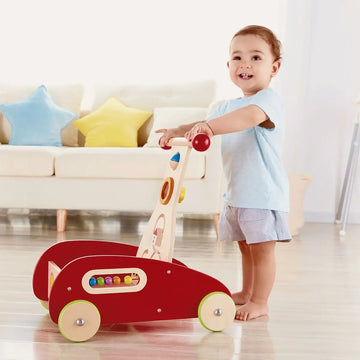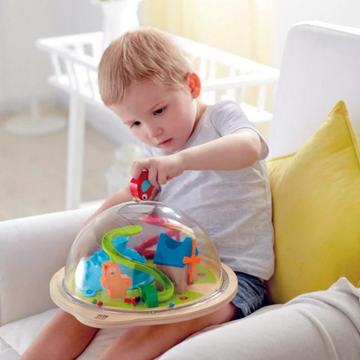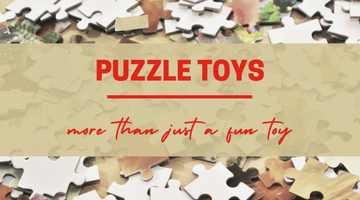What is the Right Age for a Baby Walker? A Comprehensive Guide for Parents
by Mel Heap on Nov 02, 2023

Welcoming the joy of parenthood often brings a surge of excitement and a whirlwind of new experiences. Among the many milestones, a baby's first steps hold a special place in every parent's heart. To aid this transition, many turn to baby walkers, which have been a popular tool for assisting infants in exploring their newfound mobility. However, the use of baby walkers is not without controversy. Understanding the right age for introducing a baby walker is crucial in ensuring the safety and well-being of your little one. In this comprehensive guide, we will delve into the world of baby walkers, exploring their benefits and potential risks, while providing valuable insights on determining the appropriate age and exploring alternatives for your child's development.
Baby walkers, also known as first steps walkers, infant push walkers, or walker toys, are devices designed to help infants move around before they can walk independently. These tools usually consist of a frame with wheels and a suspended seat. Their primary function is to provide support to babies as they learn to balance and take their first steps. Baby walkers have a long history, tracing back to the 15th century when they were crafted from wood and string. Over the years, they have evolved significantly in design and functionality, becoming a common feature in many households.
While opinions on baby walkers may vary, many parents and caregivers have reported several benefits of using these devices. According to experts, baby walkers can promote muscle strength and coordination in infants, aiding in their physical development. The interactive features of modern walker toys can also stimulate a child's sensory and cognitive skills, fostering early learning and exploration. Additionally, the freedom of movement provided by baby walkers can be an exhilarating experience for infants, instilling a sense of independence and confidence in their abilities.
Despite their perceived benefits, baby walkers come with inherent risks that every parent should be aware of. Studies and reports have highlighted the potential dangers associated with baby walkers, including accidents and developmental issues. The elevated mobility provided by these devices can increase the likelihood of falls, collisions, and even tip-overs, leading to injuries and, in severe cases, long-term health consequences. Moreover, prolonged use of baby walkers may impede a child's natural development, affecting their ability to learn essential motor skills and causing delays in reaching developmental milestones. It is crucial to prioritise safety and consult paediatricians before introducing a baby walker to their child.
Determining the appropriate age for a baby walker requires careful consideration of various factors. Parents should assess their child's physical development, including their muscle strength and coordination, to ensure they have the necessary skills to use a baby walker safely. Observing the infant's readiness to bear weight on their legs and their ability to sit unassisted are key indicators in determining if they are prepared for a baby walker. Paediatricians can offer valuable guidance in this process, providing personalised recommendations based on the child's unique developmental progress.
While baby walkers have been a popular choice for aiding a child's mobility, there are alternative methods that can support a baby's development without the potential risks associated with these devices. Creating a safe and stimulating environment for your child, filled with age-appropriate toys and activities, can encourage natural exploration and physical development. Providing ample floor playtime, tummy time, and supervised interaction with toys such as wooden walkers can promote muscle strength and coordination, laying a solid foundation for the child's motor skills and overall development.
For parents who choose to use a baby walker, implementing safety measures is paramount. It is essential to ensure that the chosen baby walker adheres to local regulations and safety standards, prioritising certified products that meet stringent safety requirements. Regularly inspecting the walker for any potential hazards, such as sharp edges or small parts that can pose a choking hazard, is crucial in maintaining a safe environment for your child. Additionally, providing constant supervision during the use of the baby walker and avoiding hazardous areas, such as stairs and uneven surfaces, can significantly reduce the risk of accidents.
The decision to introduce a baby walker to your child should be made after careful consideration of the risks and benefits involved. Understanding the right age for a baby walker and being aware of the potential hazards associated with its use are essential steps in ensuring the safety and well-being of your little one. While baby walkers can provide temporary assistance in a child's mobility, it is equally vital to explore alternative methods that promote natural development and physical growth. Prioritising safety, consulting with healthcare professionals, and creating a nurturing environment for your child's exploration and play are key factors in fostering their holistic development and well-being.
As you begin this parental journey with your little one, The Toy Wagon, a trusted online toy store dedicated to providing a wide range of toys, games, and puzzles in New Zealand, is here to support you in creating lasting memories. Explore our collection of baby walkers and other developmental toys to inspire your child's growth and learning.
Remember, your child's safety and well-being are our utmost priority. Browse our website today to discover a world of joy and learning for your little one.




